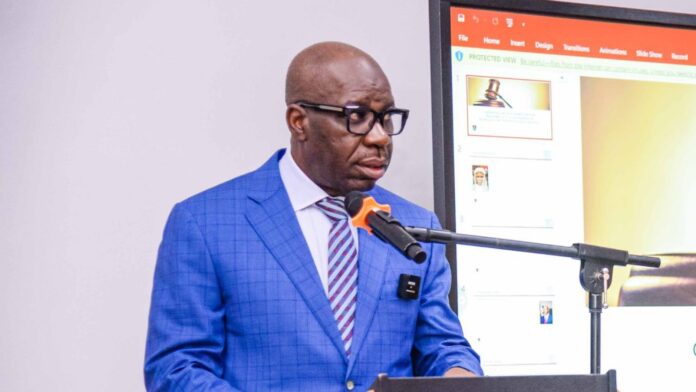By Milcah Tanimu
Governor Godwin Obaseki of Edo State has announced that the implementation of the N70,000 new minimum wage for civil and public servants in the state will be supported by savings derived from government expenditure. He emphasized that his administration’s strategic reforms over the past seven and a half years have enabled significant revenue inflow savings, facilitating the realization of this wage increase.
Speaking to journalists in Benin City, Governor Obaseki highlighted key areas contributing to these savings. The state’s adoption of business-friendly policies and innovative initiatives, such as the e-gov platform and the fleet management system for government vehicles, has led to substantial cost reductions. The e-gov platform, which digitizes government operations, eliminates paper usage and streamlines processes, resulting in considerable savings. Similarly, the fleet management system centralizes vehicle management, reducing inefficiencies and duplication of resources.
Furthermore, Obaseki mentioned the Ossiomo Power Project, which provides 24-hour electricity to the government, reducing reliance on diesel and petrol generators. Additionally, investments in training infrastructure, like the John Odigie Training Centre, enable cost-effective skill development for civil servants within the state.
The governor emphasized that these initiatives have resulted in significant savings for the government, enabling it to fulfill its commitment to the new minimum wage while ensuring sustainability. He stressed the importance of prudent financial management and careful analysis of revenue flow and expenditures in implementing such policies.
By leveraging innovative solutions and prudent fiscal management, Governor Obaseki’s administration aims to ensure the viability of the new minimum wage, providing meaningful support to civil and public servants in Edo State.

